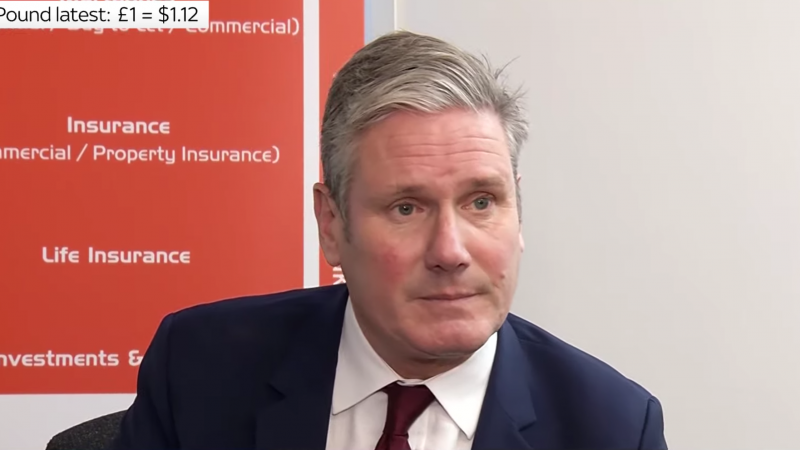
Keir Starmer has declared that millions of people across the country are “paying the cost of the government’s recklessness” as mortgage rates reached the highest level since the financial crisis in 2008.
In an interview this afternoon, the Labour leader said “the reaction of many people is not just frustration but anger” and described the sharp rise in mortgage rates as a “direct consequence” of Kwasi Kwarteng’s fiscal statement last month.
“We had a kamikaze ‘mini-Budget’ two weeks ago. As a direct consequence, mortgages are going up – and not by a little, you know, hundreds of pounds. £500 is the average, per month. Now, there are not many people, not many families, that can afford that kind of increase,” Starmer told viewers.
“Sometimes these things happen because of some world event – this is self-inflicted with the governments mini-Budget two weeks ago so I think there’s frustration, there’s anger.
The average mortgage rate for a two-year fixed product was 6.07% on Wednesday, up from 5.97% on Tuesday and 4.74% on the day the mini-Budget was delivered. This represents a 14-year high for mortgage rates. The last time the average two-year fixed rate mortgage exceeded 6% was in November 2008 at 6.31%.
“This afternoon, I’ve been speaking to first-time buyers who can’t buy now, people coming off their fixed-term mortgages who are really worried about the future. It has human consequences: millions of people paying the cost of the government’s recklessness,” the Labour leader added.
Kwarteng met with chief executives of high street banks today to discuss growing concerns over the state of the market. The Chancellor told them the Treasury would “continue to work closely with the sector in the weeks and months ahead”.
Interest rates on mortgages surged following Kwarteng’s fiscal statement, which pushed the pound to record lows and caused bond prices to collapse amid concerns over the country’s long-term economic health.
The event raised interest rate expectations and resulted in a mass withdrawal of home loans last week, with nearly 40% of home loans products having been pulled, before banks started to return with new products often priced 1-2% higher.
Commenting on Labour’s analysis of mortgage payments on Wednesday, Starmer described the crisis as “made in Downing Street but paid for by working people” and called on Liz Truss to reverse the mini-Budget, including the “totally unfunded £17bn corporation tax giveaway to the biggest companies”.
Kwarteng confirmed on Monday that he would be abandoning a plan to scrap the top rate of income tax announced as part of the statement. He claimed the proposal had become a “distraction from our overriding mission to tackle the challenges facing our country” and told people “we have listened”.
Both the Chancellor and Truss had defended abolishing the top rate of income tax before making the abrupt U-turn at the start of this week. The Prime Minister told the BBC on Sunday that the proposal was a “decision that the Chancellor made” but insisted the package of tax cuts represented the “right decision”.
Analysis published by the Resolution Foundation earlier this week reported that the richest households will still gain around 40 times as much as the poorest from the mini-Budget next year despite the U-turn.




More from LabourList
‘Tackling poverty should be the legacy of Keir Starmer’s government’
‘The High Court judgment brings more uncertainty for the trans community’
‘There are good and bad businesses. Labour needs to be able to explain the difference’